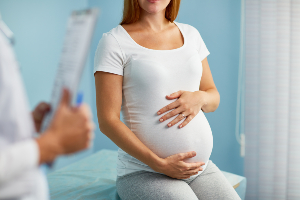 The final weeks of a person’s pregnancy can be as terrifying as they are exciting. Everyone wants the birth to go well. However, there are some circumstances in which doctors may need to perform a C-section for the health of both the baby and the mother.
The final weeks of a person’s pregnancy can be as terrifying as they are exciting. Everyone wants the birth to go well. However, there are some circumstances in which doctors may need to perform a C-section for the health of both the baby and the mother.
However, C-sections can make the matter of maternity leave more complicated. Fortunately, new mothers can request more time off at work if they have had a C-section in California. That said, there are certain factors that may change what that time off looks like.
California’s Approach to Maternity Leave
Maternity leave is designed to allow pregnant individuals to rest both before and after their pregnancy. On average, doctors recommend that pregnant employees leave work once they have reached 36 weeks of pregnancy.
California law typically allows its pregnant residents six weeks of maternity leave. More specifically, California requires this allowance from businesses that:
- Employ five or more individuals
- Act as an agent of an employer with insurance
- Work for California state or local government
Businesses with religious affiliations may request exemptions from this law. Pregnant individuals will want to compare their workplace maternity leave policies with California’s maternity leave laws before bringing a civil complaint in court.
When Does Pregnancy Disability Law Come Into Play?
California law considers any pregnancy involving a C-section to disable a pregnant individual, albeit temporarily. This status allows a pregnant individual to request pregnancy disability leave. Other disabilities covered by this form of leave include hypertension, postpartum depression, and the unexpected loss of a pregnancy.
Individuals requesting pregnancy leave must also meet California’s requirements for small, medium, and large businesses. Provided that pregnant individuals meet both requirements, they can request up to four months of leave per pregnancy.
How Long Can Maternity Leave Be in California?
California offers three types of maternity leave: family leave, disability leave, and reasonable accommodation leave. Disability leave falls soundly between the other two forms of leave in terms of the time it offers families to recover from a birth.
The amount of time given to pregnant individuals on family leave varies depending on the size of the business. Businesses with five or fewer employees are expected to give employees six weeks of family leave. Businesses with twenty or more employees are expected to provide employees with twelve weeks away from work.
Employees who want to pursue additional time with their children can request reasonable accommodation leave. Employers and employees should collaborate to determine what constitutes “reasonable time,” as this leave is variable, but capped at seven months.
Consult a California Attorney about a Mother’s Workplace Rights
Giving birth can be a traumatic experience even when everything goes well. Mothers who have C-sections specifically or who come away from the process disabled need to take time for themselves to recover.
Anyone who feels as though their employer has not given them the rights they deserve as a new mother can reach out to Blackstone Law. Blackstone Law’s employment law attorneys can represent new mothers who want to combat workplace discrimination after a C-section. Call (310) 956-4054 or use the firm’s contact form to learn more.

